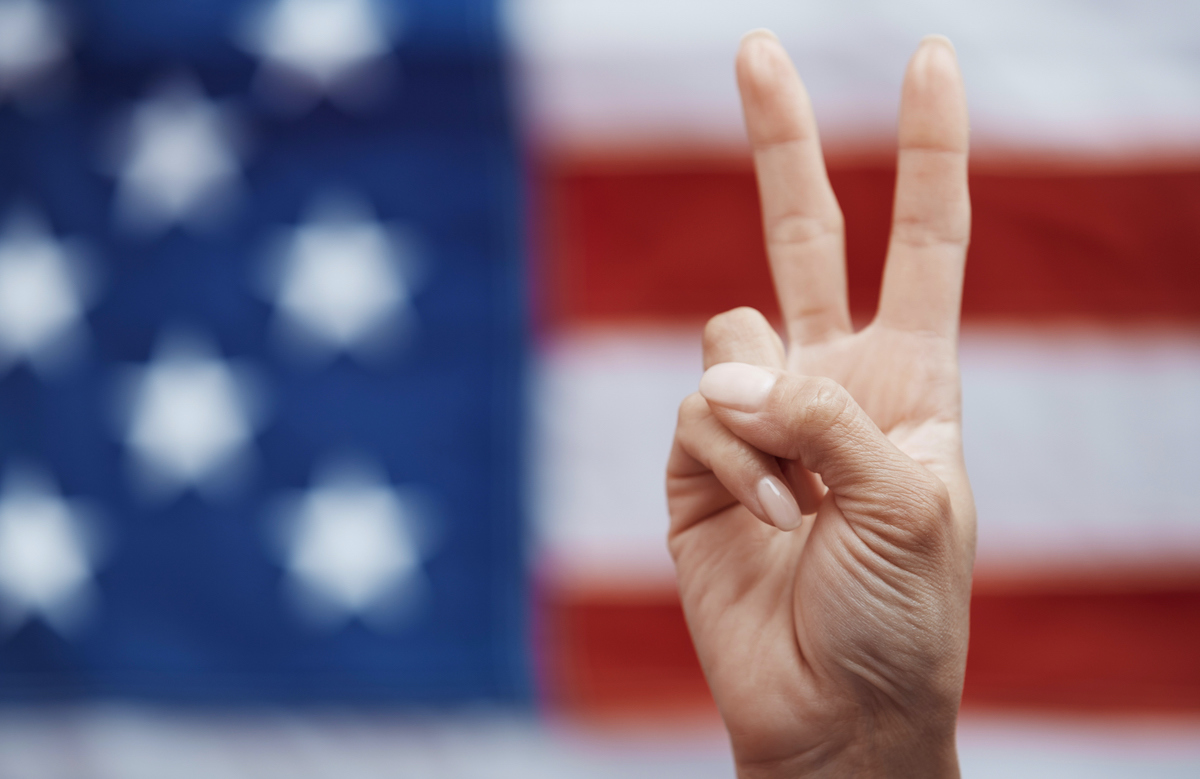Americans Still Don’t Want War, Despite the Military-Industrial Complex’s Best Efforts
Over the past year, the US public has been subjected to an avalanche of propaganda attempting to stoke future war with Russia and China. What’s stunning is how few Americans are buying it.

Surveys show a strong plurality of Americans would oppose going to war with Russia or China. (Getty Images)
What with the once ambitious Build Back Better bill slashed and stalled, multiple looming foreign policy crises, and still festering social and economic ills the Joe Biden presidency appears determined to leave unaddressed, we’re starved for good news these days. So take solace in this: the US public’s appetite for war is still remarkably small, despite the best efforts of its elite.
A recent survey from YouGov and the Charles Koch Institute found that a strong plurality of Americans oppose going to war with Russia over Ukraine, with 48 percent of respondents somewhat or strongly opposed (with the latter stance taking the bigger share), and only 27 percent in favor, a mere 9 percent “strongly” so. This is a fairly stunning result, given not just the pro-war slant among politicians and the media when it comes to this particular crisis but years of attempts to stoke conflict between the two countries since 2016.
Russia and Ukraine isn’t the only area we see this in. A similar bipartisan push to demonize China and commit to a going to war if Taiwan’s sovereignty is threatened has succeeded in getting more Americans to view China as a threat, but it hasn’t made them particularly enthusiastic about the idea of war with the country.
The 2021 Reagan Foundation survey found that, when it comes to potential responses to a hypothetical Chinese invasion of Taiwan, the most popular are nonmilitary options like recognizing Taiwan’s independence (71 percent) and economic sanctions (66 percent), with upping arms sales (44 percent) and sending ground troops (40 percent) the least favored. And while a no-fly zone has risen 8 points in popularity (50 percent) since 2019, it’s not clear how much of the public actually understands what this clever euphemism actually entails.
To be fair, you can find some different results at the Chicago Council on Global Affairs, which found that a slim majority of Americans (52 percent) for the first time actually support sending US troops if China invades Taiwan. (A record 59 percent also supported the same in case of a Russian invasion of a NATO ally, which Ukraine isn’t.) But even there, respondents overwhelmingly favored putting domestic concerns over global ones, and a whopping 81 percent saw homegrown threats, including polarization and the COVID-19 pandemic, as more concerning than threats from outside the country, results that line up with the findings of the more anti-war YouGov/Koch survey.
Similarly, despite one of the most aggressive pro-war media campaigns in recent memory, the US public still backs the withdrawal from Afghanistan, either in the form of a strong plurality (47 percent according to the Reagan Foundation) or a large majority (64 percent of Chicago Council respondents). There the best efforts by the Washington establishment to manipulate public opinion and keep the war going were an unambiguous failure.
These results point to the diminishing currency of foreign affairs fearmongering as a political tool. While there are periods of US history where external national security threats have been effective political rallying cries — the early years of the Cold War and the era following September 11 come to mind — we appear to currently be drifting from this style of politics, even with the avalanche of propaganda aimed at reversing this trend.
As Stephen Semler has pointed out, Biden’s attempts to use the specter of China to sell his domestic program flopped, neither inspiring public mobilization in favor of his legislative agenda nor putting any pressure on congressional Republicans to support it. As even the Chicago Council, firmly aligned with Biden, admits, Americans “do not appear to make a connection between infrastructure improvements at home and benefits to US influence overseas,” ranking it near the bottom of actions that would help retain US global influence.
We saw something similar during the Donald Trump years, when Democratic attempts to engineer several foreign-policy-based crises to undermine his presidency — the “Russiagate” and “Ukraine-gate” sagas, specifically — failed badly. From beginning to end, voters simply didn’t care about the first, while impeachment over the second sent his approval rating to an all-time high. Aside from his final days in office, Trump’s worst approval rating came in December 2017, when he was busy pushing through his plutocratic tax cuts.
Nothing is ever guaranteed in politics, and just because public attitudes are still remarkably averse to war in the face a nonstop barrage of hawkish propaganda doesn’t mean it’ll always stay that way. But the fact that powerful establishment pro-war factions are having a harder time wagging the dog these days is something worth cheering for.